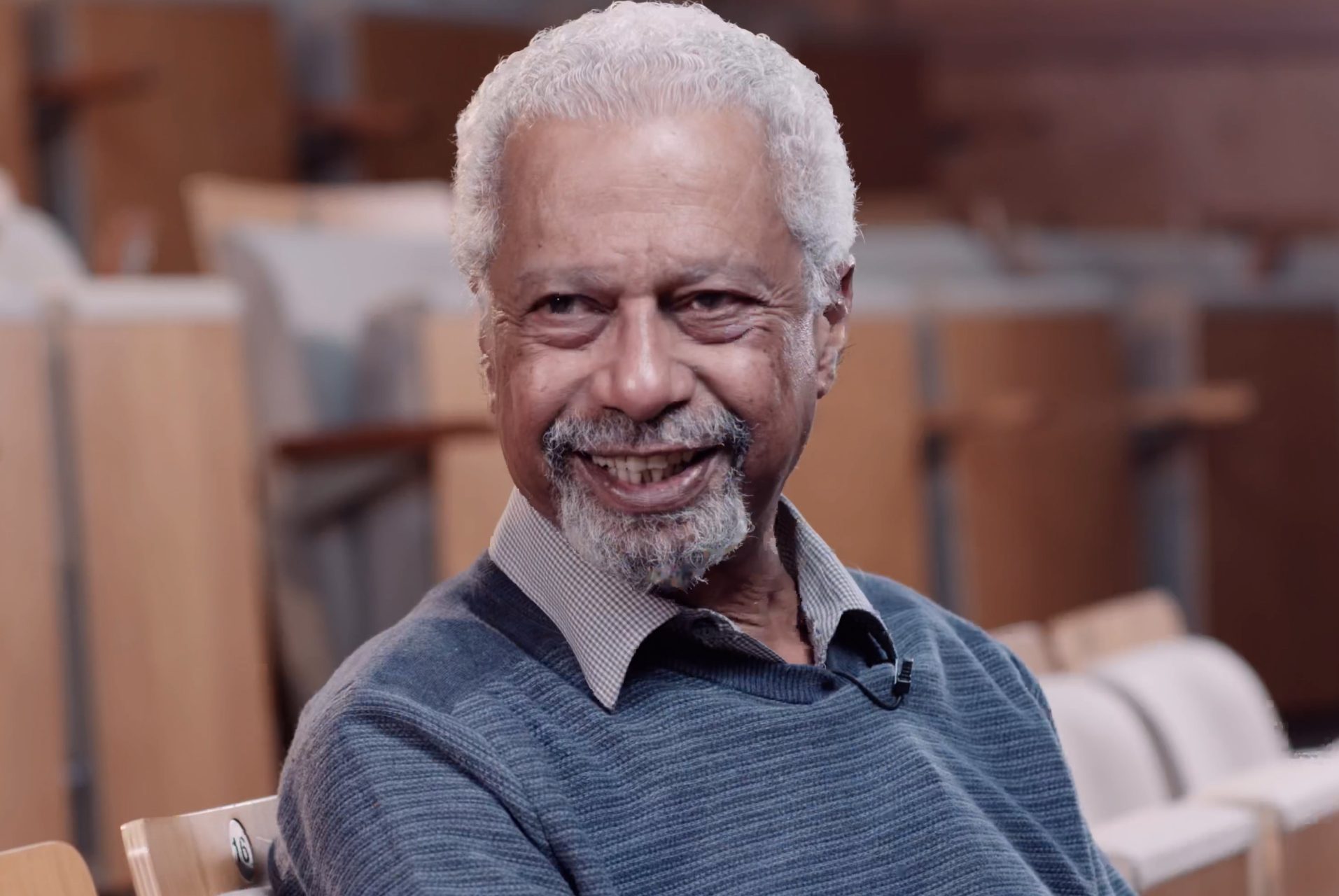Dr Bashir Abu-Manneh | Head of School of English
On 24 February, the School of English (in association with the iCCi and the British Council) hosted Abdulrazak Gurnah, our own Nobel Laureate in Literature, for an “In Conversation” dialogue with Amy Sackville and me. The Gulbenkian Theatre was packed and the event was livestreamed.
With characteristic charm, generosity, and straight talking, Gurnah elaborated on key aspects of his worldview and fiction. We discussed the problems of departure and arrival, his sense of what belonging means, how justice informs his work, his critical intervention in English literary studies, his teaching and its relation to his fiction writing, and telling stories that need to be told. Gurnah talked about why stories about neglected lives and forgotten people matter, about the human effort to survive in the face of adversity and hostility, and about the importance of travel, journeying, and understanding the cosmopolitan histories of pre-colonial East Africa. He also foregrounded the particular dimensions of forced displacement and the human responsibility to provide refuge for those escaping war, state violence, and terror.
“Writing made my life feel useful and fulfilling”, he affirmed. As his work captured loss, tragedy, and past injury, it facilitated a process of retrieval and restitution. His work, he said, thus lingers on necessity and tries to get at truth: “It always feels very important to me as a writer to say that I am speaking as truthfully as I can”. So he challenges the exclusions and ideologies of power and insists on universal human needs. If human cultures can be “ugly, monstrous things” and an unexamined sense of belonging risks self-delusions, remaining cautious and open to the experience of others can save us from narcissistic self-regard.
After such rich ruminations on literature and writing, I left the event thinking that Gurnah’s singular literary achievement feels truly historic for Kent. His impact on our School of English and on our critical and creative practices felt deep and enduring. For me, Gurnah epitomises the best of Kent: a confident educational institution committed to neglected voices and democratising narratives and publicly engaged in the pursuit of global justice. What better civic mission for our University?
If you missed this event you can view our livestream here.
